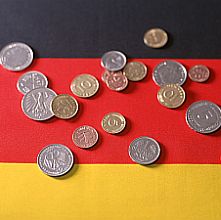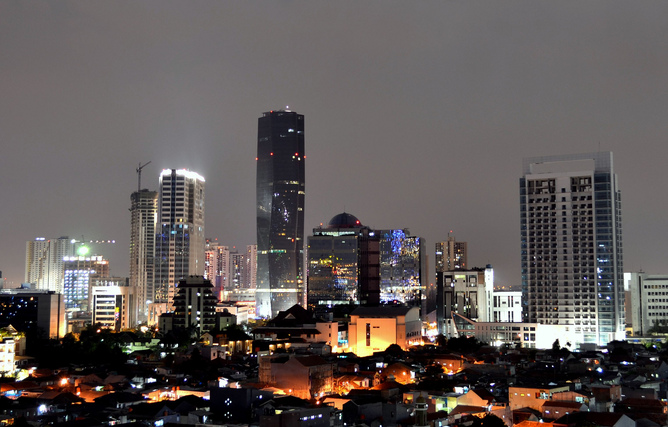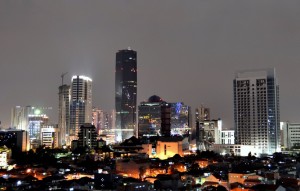
India slips in rankings as slowdown hits pharma
February 3, 2014
The Big Challenges Facing German’s Economy – Daily Reckoning
February 3, 2014The global financial crisis has morphed into its latest form: an emerging markets currency crisis. Investors are fleeing developing and middle-income countries – even those with strong long-term growth prospects – for the safety of developed economies. What capital remains must search harder than ever for excellent returns.
Over the past decade the BRICS countries (Brazil, Russia, India, China and South Africa) have dominated emerging market investments, but their growth is slowing. Investors have now turned their eyes to another group, the MINTs (Mexico, Indonesia, Nigeria and Turkey). The BRICS have achieved double-digit growth rates in recent years, and investors are wondering if this will be possible in the MINTs too. The opportunities presented by the MINTs are clear, but so are the challenges.
So, what unites the MINTs? The key thing they all share is favourable demographics. Their populations are large and youthful, with a strong ratio of people eligible to work relative to those not working. This last point is something two ageing BRICs, China and Russia, can envy.
The MINTs should also benefit from their geographical positions. Mexico borders the US and links it to the rest of Latin America, Indonesia is in the heart of South-East Asia, Nigeria is close to some thriving African countries, while Turkey spans Europe, Central Asia and the Middle East. As global trade patterns develop, the MINTs are well placed to take advantage.
At this stage of their economic development the MINTs are generally harnessing their large populations to pursue export-led growth, following in the footsteps of the Asian tiger economies of the 1970s and 80s. As Chinese exports become more expensive due to rising wages, an appreciating currency and an economy increasingly geared towards domestic consumption, we’ll increasingly find our goods manufactured in a MINT.
But increasing the labour force is not enough to automatically achieve high rates of economic growth. The countries need steady flows of capital, both domestic and foreign.
However, capital – that is, investors’ money and expertise – is especially sensitive to political factors such as strong institutions and the rule of law. No one wants to see their investment seized in a coup, or lose its value due to sudden legal changes. In fact, following the global financial crisis, countries who had good legal institutions retained more of their foreign investment.
Given this sensitivity, the serious issues with corruption and the rule of law in the MINTs represent a particular challenge. The four countries are characterised by low scores in the Corruption Perceptions Index published annually by Transparency International on how corrupt each country’s public sector is. Out of 177 countries, Nigeria ranks 144th, Indonesia 114th, Mexico 106th and Turkey 53rd. Doing business in those countries, especially in Mexico and Nigeria, is a challenge.
The MINTs face other barriers: poor levels of education, especially in Indonesia and Nigeria; poor infrastructure – again more so in the case of Nigeria, where energy supply is clearly affecting productivity and growth; and a general resistance to reform, especially in the labour market.
One of the big questions facing the MINTs right now is over their ability to withstand to finacial crises. The recent slide in emerging market currencies has raised fears that we might see a repeat of the Asian financial crisis on 1997, when many of the “Asian tigers” ran into massive problems.
The MINTs are more vulnerable to currency crises as they do not at the moment share the depth of the financial system of the BRICS economies, or the experience of their monetary authorities to help them manage their economies out of a currency crisis.
Take China. The financial system there faces mounting difficulties but the government has the capacity to bail it out and restore international confidence. Similarly India has its problems, but its central bank is giving the impression that it has control of the economic situation.
Turkey, on the other hand is currently experiencing 7% inflation, a huge current account deficit, a sliding currency and shrinking savings, investment and exports. The monetary authorities cannot do anything about it.
The Turkish experience is typical across the MINT economies, who have yet to truly develop major financial systems. Worries over financial resilience will definitely be on the minds of investors when balancing the growth prospects of these countries against their vulnerabilities.
Yet despite the gloom there is no doubt that the MINT economies are fresher than the BRICS. There is an enthusiasm and dynamism, which I certainly felt myself on a recent visit to Turkey.
But stable double digit economic growth? Don’t count on it just yet.



